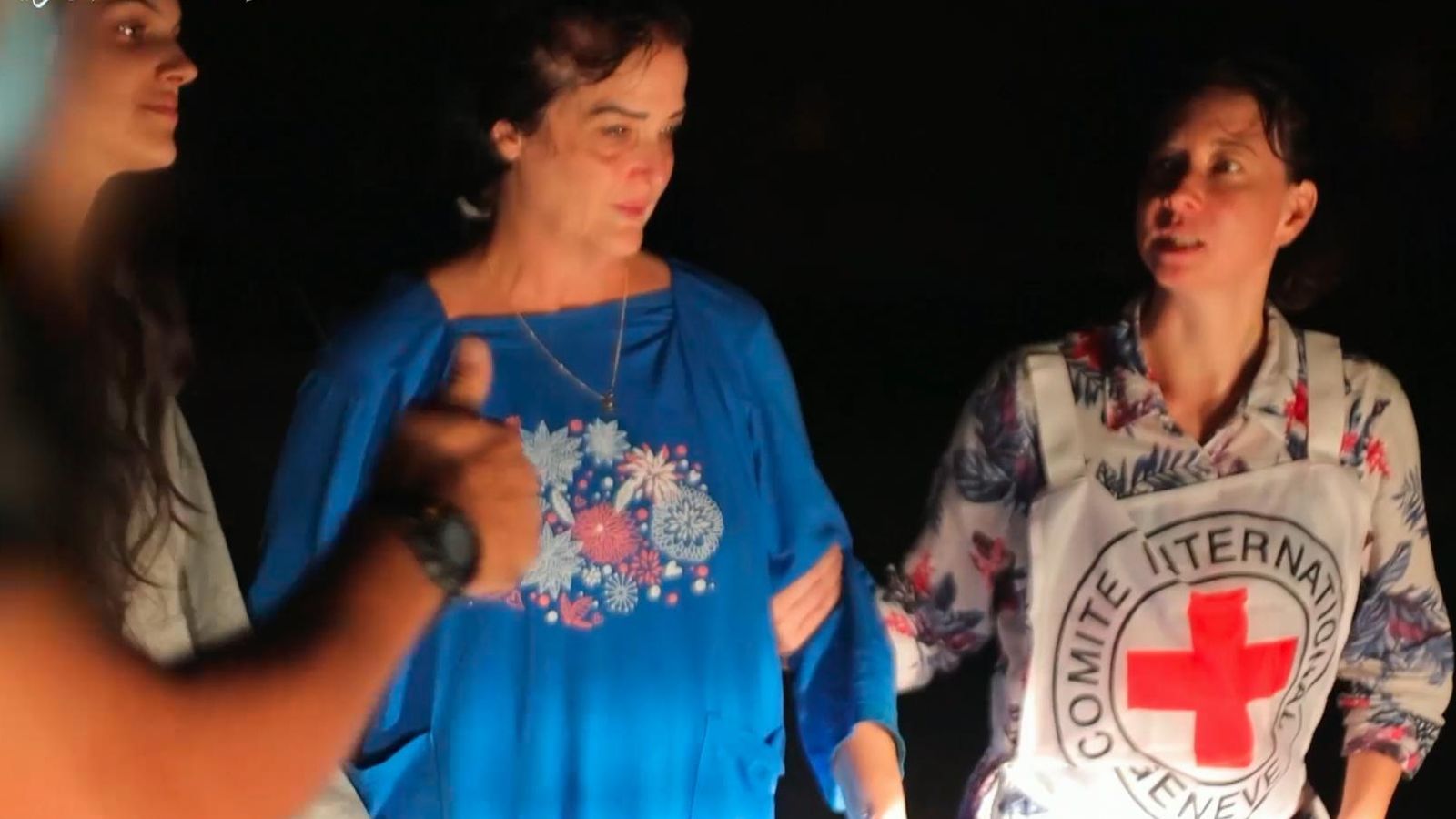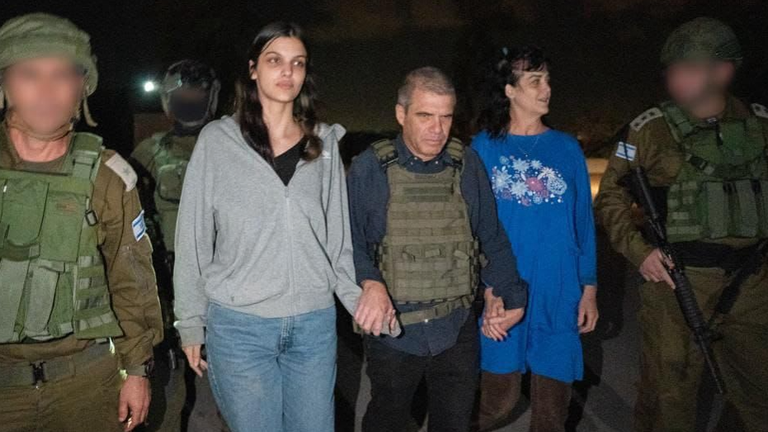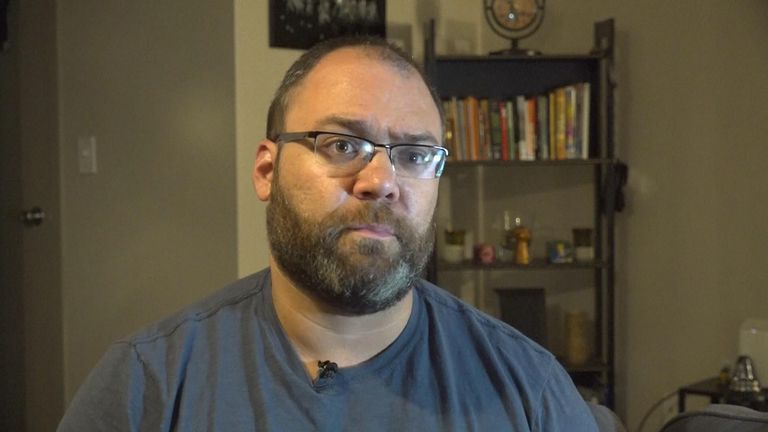Late on Friday night, somewhere along the Gaza-Israel border, Judith and Natalie Raanan were handed over by masked Hamas gunmen into the care of the International Red Cross.
In a video released by Hamas, they look exhausted and dazed.
No wonder.
Follow latest: First aid trucks enter Gaza
The Americans were just two of an estimated 203 hostages taken by Hamas when they broke through the border fence and went on a murderous rampage exactly two weeks ago.
For all the good news that last night was, this remains the biggest hostage crisis in Israel’s history.
The release was largely down to mediation conducted by Qatar, along with American support.
Some of Hamas’s senior political leaders live in Doha in exile and retain an office there.
Whilst some might question why Qatar, a western ally, allows Hamas to remain there, they would argue this is an example of how it is better to have Hamas close-by rather than sent into exile to an unfriendly state.
Were Qatar to close the office and deport Hamas, they would likely go to Tehran and maybe onto Moscow. Lines of communication, so vital at a time like this, would be lost.
Officially, the pair were released on “humanitarian grounds” but that phrase could cover all manner of reasons.
I would think it unlikely any concessions were made to Hamas in exchange for their return, more probable is that this was an attempt by the group to appear compassionate.
Few will buy that.
Click to subscribe to the Sky News Daily wherever you get your podcasts
Many of the hostages who remain in Gaza have serious and even life-threatening medical conditions: cancer, kidney disease, autism and diabetes being just some that we know about.
They range in age from nine months to 90-years-old, and most are civilians not soldiers, although a high number of Israel Defence Forces soldiers were captured.
Their fate is far more complicated, I cannot see Hamas handing Israeli soldiers back without demanding significant concessions in return, probably the release of thousands of Palestinian prisoners, but negotiators will be impressing on Hamas that there is no humane reason why they should keep women, children and the elderly captive.
Read more
Father of freed hostage shares update on her condition
In pictures: The pain and heartbreak of the Israel-Hamas war
Analysis: Politicians are making matters worse, not better
There are unverified reports that the US and some European countries are urging Israel to pause any plans there might be for an imminent ground invasion of Gaza, in order that the hostage negotiations are given more time.
That position, assuming its true, will be strengthened by events last night.
Undoubtedly, securing the release of hostages via diplomatic channels is preferable to a military-led rescue operation.
With so many hostages still in Gaza, and likely spread around the Strip both overground and underground, kicking down doors and going in shooting is fraught with extreme risk for Israeli soldiers – and the hostages themselves.
Whilst there is certainly logic in this, having spent the past fortnight preparing their forces, Israel might want to move sooner than later, denying Hamas any more time to regroup and prepare themselves for the battle ahead.



